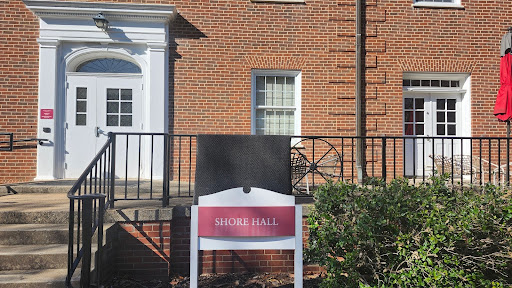“It’s killing the bees, and if the bees die, we die,” said junior Hannah Schewel when asked to speak about climate change. Time recently reported that the mortality rate in honeybees has risen from 10 to 30 percent in the last five years.
Like Schewel, students have unique responses to the recent U.N. report on global warming, but the consensus seems to be in agreement with the International Panel on Climate Change’s findings — that global warming is caused by humans.
Conducted every six years, the IPCC climate change report recently declared that scientists were 95 percent sure that humans play a major role in climate change. This number has been steadily rising over the years, and environmentalists are hoping that this will act as a wake up call.
The IPCC suggested that policies be implemented to stop greenhouse gas emissions but provided no specifics regarding policy structure or enactment.
“Global temperature equilibrium would be reached only after centuries to millennia if radiative forcing were stabilized,” the report said. “A large fraction of climate change is largely irreversible on human time scales, unless net human-created carbon dioxide emissions were strongly negative over a sustained period.”
Opponents of the report insist that the policies are not as critical as the IPCC suggests.
“It’s going to be 70 years before we see any harm from climate change, and meanwhile we’re seeing quite a lot of harm from climate policies,” said British journalist Matt Ridley in an interview with BBC.
In his article for The Wall Street Journal, Ridley further decries the prospect of new policies, saying that the “effect of climate change will be positive for humankind and the planet.”
While criticism such as Ridley’s is prevalent, many support the creation of new policies.
“We know our climate is changing and the report offers ways in which we can mitigate and adapt to these changes,” said Kyle Dell, associate professor of political science, in an email interview. “Policy changes are going to be required regardless of what we believe. The only question is this: will we make the additional sacrifices in the short term to realize a better planet for generations to come?”
While some question the report and suggest the influence of political bias, Assistant Professor of Justice and Policy Studies Sanjay Marwah and Professor of Geology David Dobson uphold the IPCC’s credibility.
“There’ve been a lot of controversies and criticisms about challenging the credibility,” said Marwah. “The IPCC has made a significant effort and systematically addressed the concerns. No one can fully validate the report, but the IPCC tried to make sure it wasn’t based on just one group or one study.”
“The IPCC always seems to do a good job,” said Dobson. “I think the people who criticize it usually have an agenda that’s not scientific.”
But above all else is the message of the IPCC report: climate change is here, and we must take measures to stop it.
Awareness is the first step.
“If we don’t know about it, we can’t do anything to change it,” said Lily Collins, sophomore and the sustainability chair of the Community Senate.












